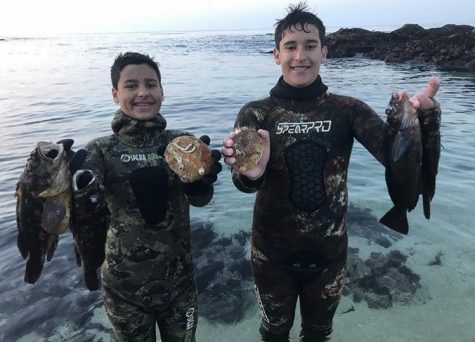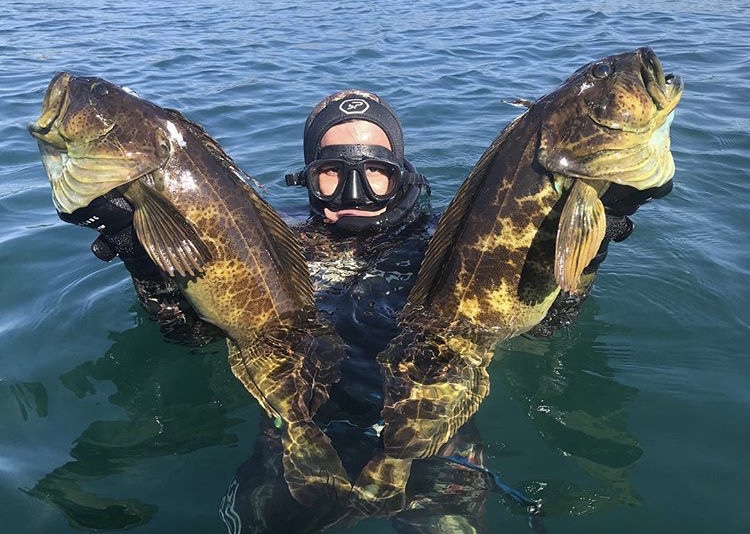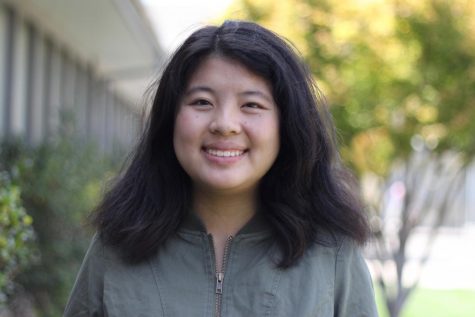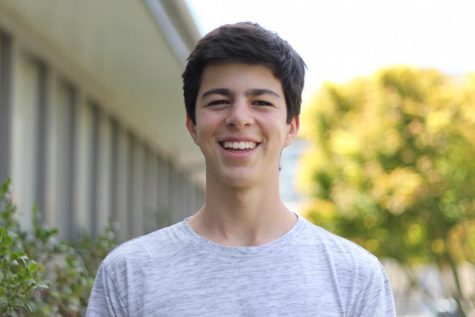Noah Revelo’s family tradition: No (fish) guts, no glory
December 14, 2018
Sophomore Noah Revelo knows that once he enters the Fort Bragg waters, he is no longer at the top of the food chain—that status belongs to the great white shark. One lurks near Noah and his father, attracted to the blood of their speared fish. But Noah is safe. His Shark Shield, an anklet equipped with an electrical current, stops the shark in its tracks.
Fishing is tradition in the Revelo family. Antonio Revelo, Noah’s father, grew up in San Francisco, and when he was 12 years old, he was introduced to fishing through a childhood friend.
“We would ride our bikes with our fishing poles strapped to our bicycles and fish off of the piers and beaches in San Francisco,” Revelo said.
Noah started fishing with a rod at the age of four and transitioned to spearfishing, a form of underwater fishing using a spear rather than a rod, at age nine.
A typical fishing day for Noah and his family starts by waking up at anywhere from 3 a.m. to 6 a.m. and spending over three hours packing about 200 items into their truck, including their spearguns, wetsuits, pry bars, float lines and kayak attachments. It takes them about 80 minutes to drive to Fort Bragg or Mendocino, where they camp for the night. They can spend up to 20 hours preparing for their entire trip.
In the morning, Noah and his family unload and rig the kayaks, put on their gear and then paddle out into the open ocean, where they spend almost half of their day diving.
Revelo emphasized the importance of working together as a team during a dive to avoid potential hazards. However, according to Revelo, while people believe sharks are the most dangerous aspect of diving, drowning is the leading cause of death for freedivers.
“The leading cause of death for freedivers is [actually] shallow water blackout,” Revelo said. “Shallow water blackout is a loss of consciousness caused by cerebral hypoxia towards the end of a breath-hold. Every year free divers die when they blackout and then drown.”

Noah Revelo (on the right) takes his little brother spearfishing for the first time to pass down the family tradition.
This is why the Revelos dive in groups rather than alone, resulting in a family bonding experience.
“When we are in the water, we are in constant communication with one another as we safely ‘buddy dive,’” Revelo said.
The family bonding also extends to the exhaustion following a diving trip. After spearfishing, they paddle back to the beach and clean their equipment before heading home. On the way home, the family discusses their “triumphs and mishaps,”
“We’re so dead and tired after [diving],” Noah said. “It’s a long process, but it’s really fun and it’s good to spend time with my father. [It’s] family bonding time, and we’re getting my little brother into it as of now.”
Fishing in the ocean requires Noah to freedive anywhere from 10 to 50 feet underwater. Over the years, he has trained his lungs to hold his breath for longer periods of time. He’s also become more comfortable with the land of his favorite location to fish, a “secret” spot in the Monterey and Carmel area.
However, Noah is still drawn to the diving component of spearfishing and believes that the experience of being underwater is better than fishing onshore.
“A lot of people are really scared of the ocean, [but they] just don’t know what’s down there,” Noah said. “When you go down there, there could be a sandy, kelpy or rocky bottom. There’s caves [and] cracks you have to explore with your flashlight. [Sometimes] you see a big pair of eyes looking back at you. When you go down there, it’s a whole other world.”
Noah plans to continue spearfishing and diving in the future and dreams of becoming a professional underwater videographer.
“It took a lot of time and patience to train him and his brother,” Revelo said. “Hundreds of hours have been spent on training them to become safe freedivers. I’m hoping that one day he’ll have the patience to teach his son as well and carry on the tradition.”






